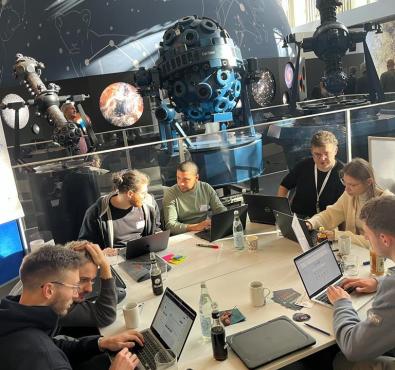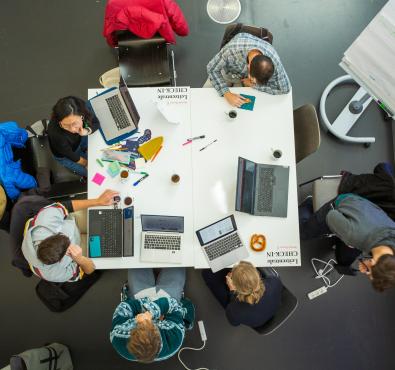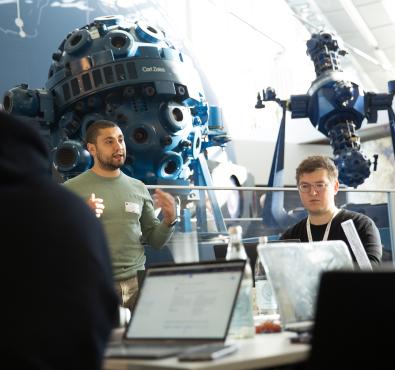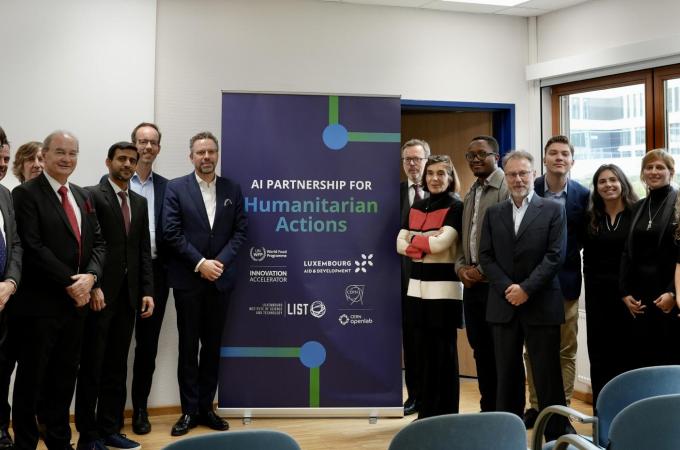Artificial intelligence (AI) technologies hold great potential for the World Food Programme (WFP). However, decentralized AI development within WFP doesn't naturally generate reusable workflows, data pipelines and knowledge sharing.
Project overview
WFP’s Artificial Intelligence (AI) Sandbox initiative aims to create a collaborative environment that provides WFP colleagues and partners with a platform to experiment, innovate, pilot and scale AI models and AI use cases.



The AI Sandbox is a vital resource for WFP. It will enable WFP to assess the feasibility, effectiveness, and potential impact of new AI projects before scaling them up. This proactive approach ensures that only the most promising and responsible AI solutions are implemented and scaled, aligning with WFP's commitment to leading in technological advancements while simultaneously maintaining ethical standards. The AI Sandbox thus plays a crucial role in minimizing risks while fostering innovation and maximizing the positive impact of AI on WFP's mission to combat global hunger, providing increased computing power to allow teams to collaborate on common objectives.
With the launch of the beta cohort in April 2024, eight internal WFP teams have been onboarded. The cohort consists of a mix of autonomous teams and assisted teams. The autonomous teams possess the necessary AI expertise to independently develop their AI solutions within the sandbox. Meanwhile, the two assisted teams will leverage the specialized AI expertise provided by the WFP AI Sandbox expert pool to advance their projects.
The chosen pioneering use-cases are:
- CBT Anomaly Detection
This AI solution aims to automate the detection of fraud and other anomalies in the delivery of cash-based assistance. By enhancing the CBT team's ability to identify irregularities that may have previously gone unnoticed, this tool significantly boosts their capability to ensure integrity and accuracy.
- OEV Evidence Mining
This AI solution aims to provide an automated text retrieval system powered by Natural Language Processing (NLP). It is designed to enhance the efficiency of retrieving relevant pieces of evidence, allowing for the preparation, delivery, and dissemination of customized evidence summaries that meet user demands with rapid turnaround times.
- UN AI Smart Mission Planner
The UN AI Smart Mission Planner's goal is to optimize humanitarians' mission planning and travel resources, to cut down on planning time, accelerate emergency response and optimize utilization of travel resources across the entire UN network and humanitarian communities.
- ML4AA (Machine Learning for Anticipatory Action)
This innovation aims to apply cutting-edge machine learning models to enhance the quality of seasonal forecasts and make them more accurate, relevant and impactful for WFP food security activities like early warning and anticipatory action programmes.
- AI for Country Strategic Planning
This AI solution utilizes Large Language Models (LLMs) to analyze global portfolio trends and context-specific strategies. By modelling evidence-based prioritization scenarios and harnessing past data patterns, it offers timely and precise strategic insights to WFP's country office staff. This enhances decision-making processes across the CSP programme cycle, ensuring more effective and informed operational choices.
- SHAPES
SHAPES is an analytical platform for food security scenario simulations, enabling simultaneous analysis of the potential impact of multiple shocks and the effects of humanitarian assistance with one tool.
- GenAI for Knowledge Management
This AI solution provides highly relevant and precise answers to queries and questions related to WFP by utilizing Large Language Models (LLMS) and Retrieval Augmented Generation (RAG). build on top of rich and diverse WFP resources, this solution will guide users to resources containing contextually relevant information and answer complex questions. As a result, knowledge retrieval becomes more efficient, significantly reducing the time spent searching for information.
- ETC Chatbot
ETC Chatbot aims to elevate its humanitarian chatbot by advancing from basic functionalities to conversational and cognitive analytics, addressing the challenge of enhancing user experience, fostering trust within affected communities and optimizing information delivery in humanitarian contexts.
The beta phase is an important step in the AI Sandbox’s journey in becoming a vital resource for WFP. Once fully functioning, the AI Sandbox will enable WFP to assess the feasibility, effectiveness, and potential impact of new AI projects before scaling them up. This proactive approach ensures that only the most promising and responsible AI solutions are implemented and scaled, in line with WFP's commitment to leadership in technological advancements and ethical standards.
WFP's AI Sandbox thus plays a crucial role in minimizing risks while fostering innovation and maximizing the positive impact of AI on WFP's mission to combat global hunger, providing increased computing power to facilitate collaboration on shared objectives.




